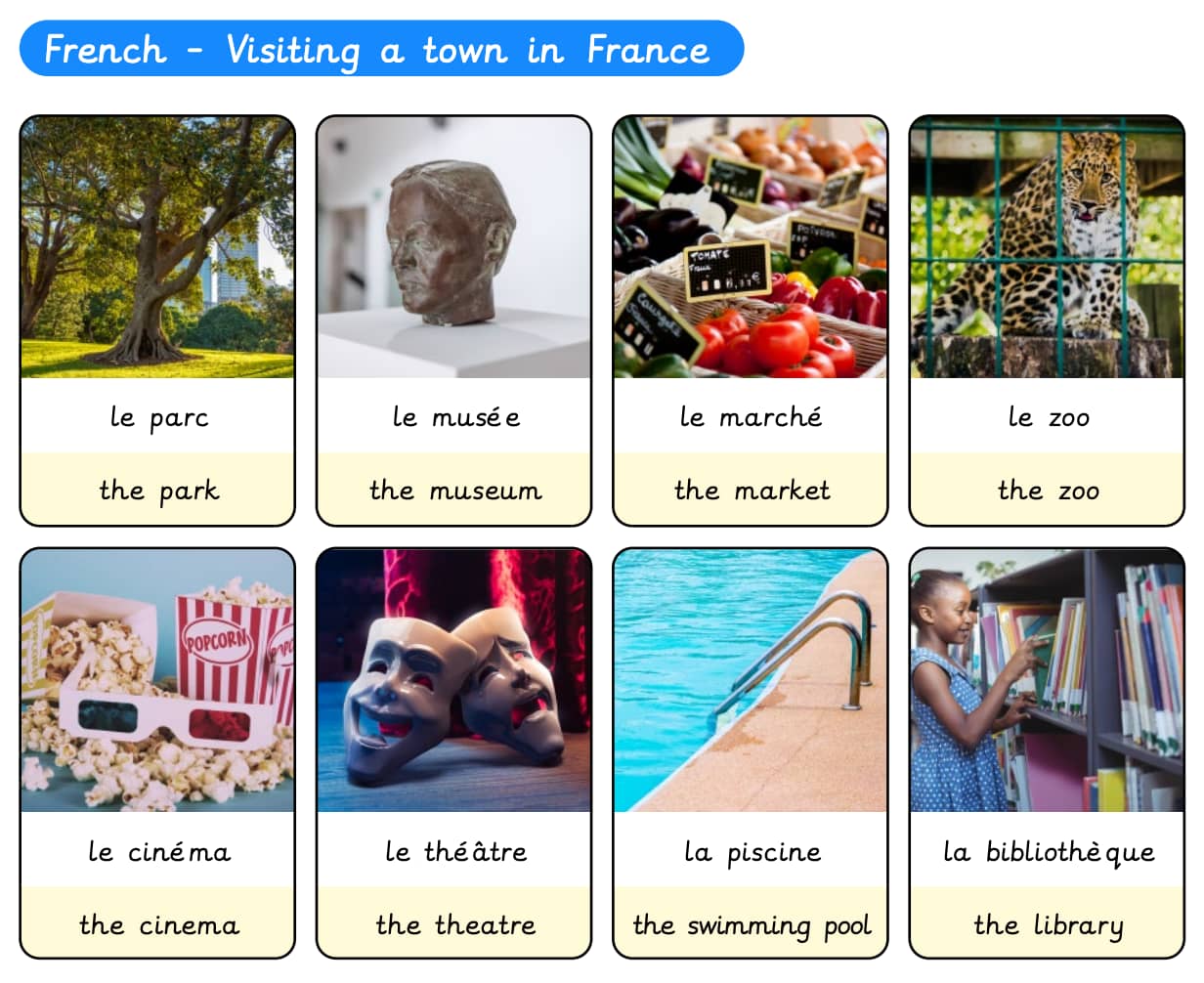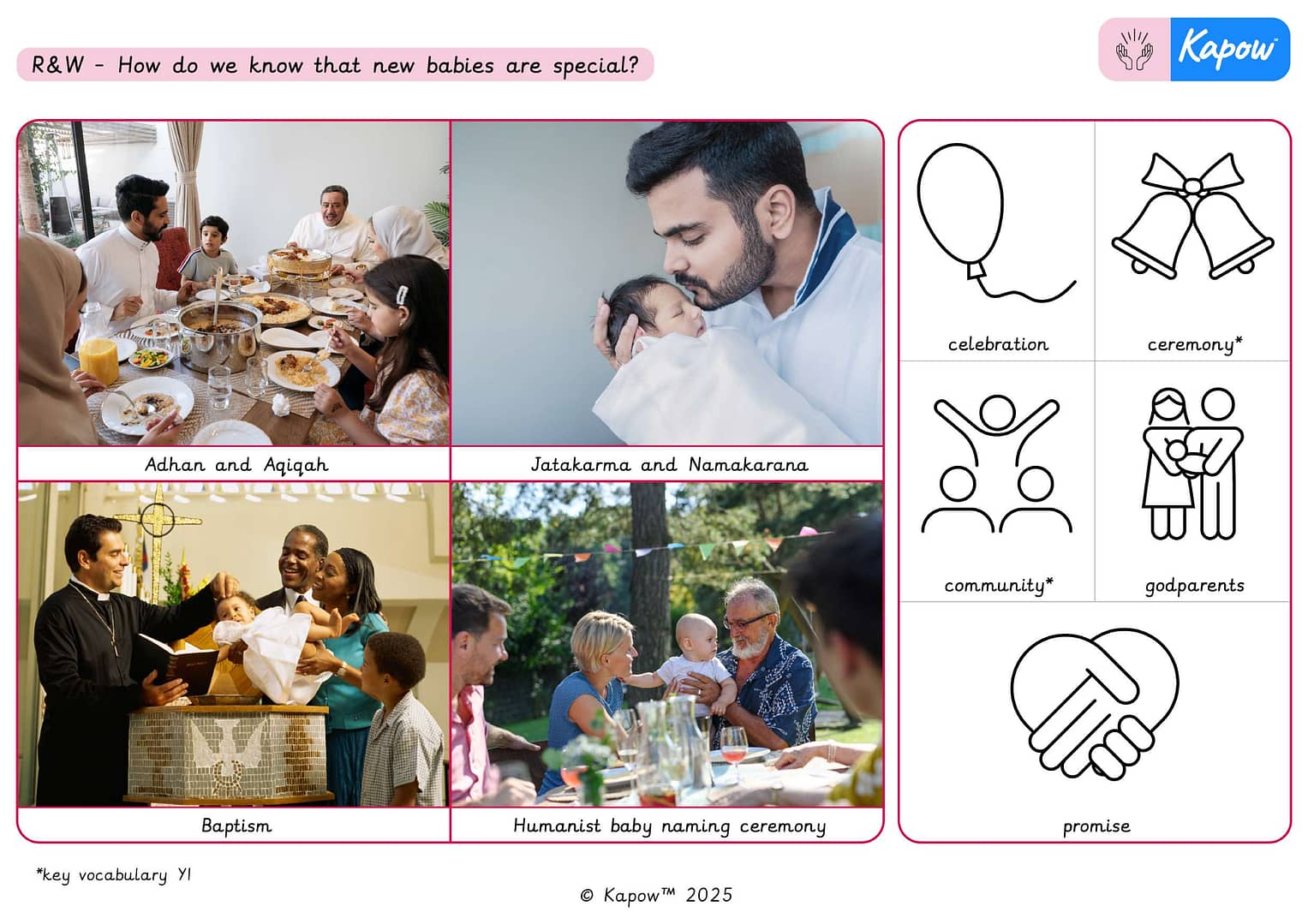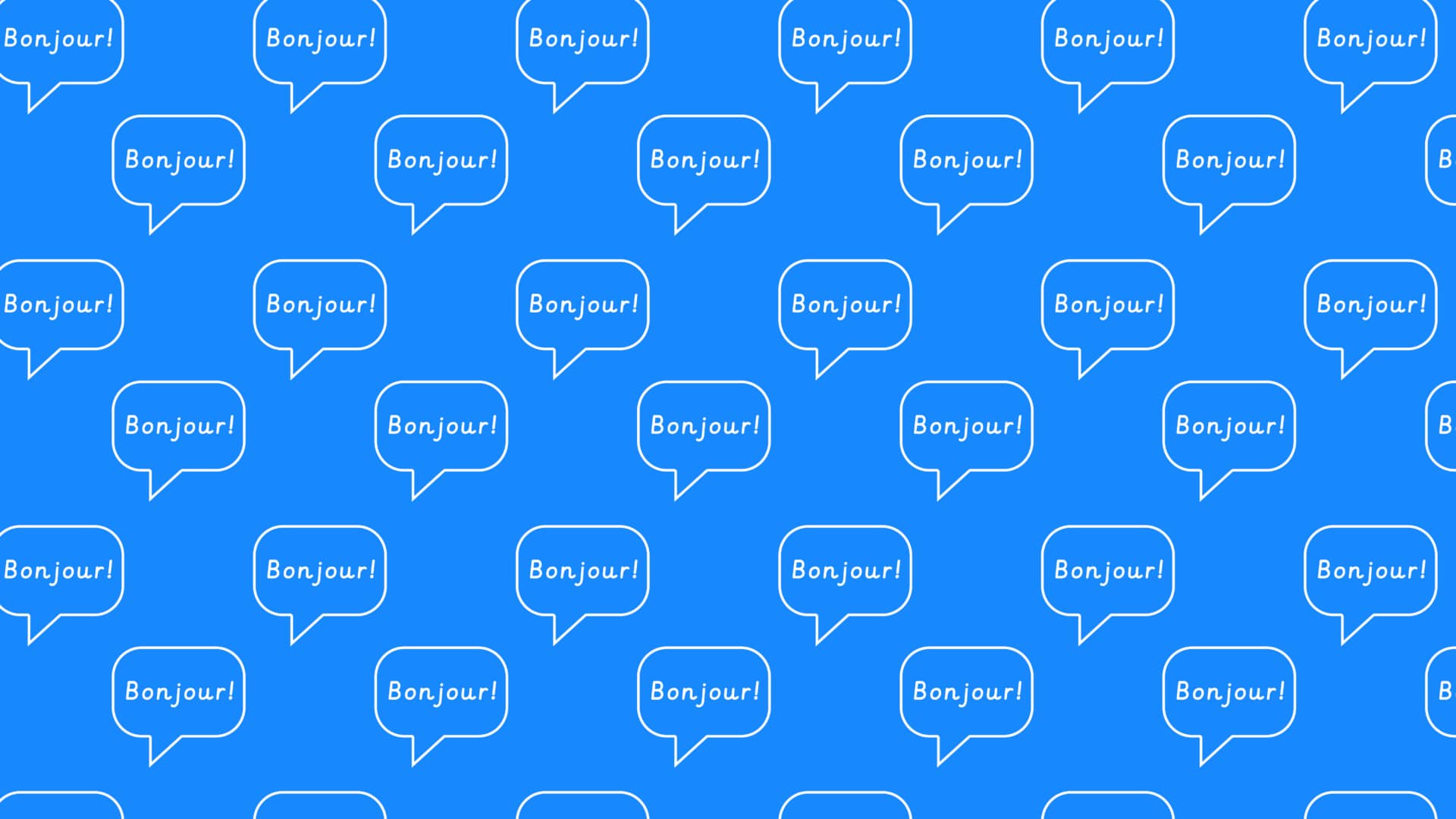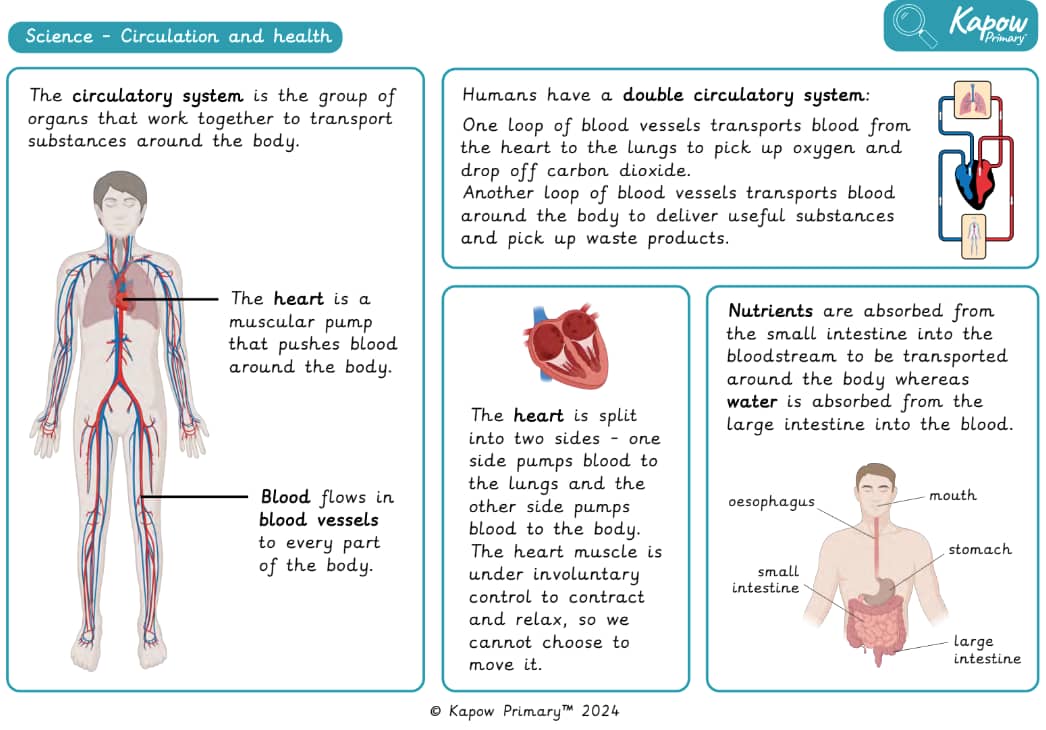A Knowledge Organiser that captures the essential knowledge and skills learnt throughout the mixed-age unit French, Y5/6 (B), Unit 5: Visiting a town in France.
This resource is designed to help pupils describe places in a French town and give and follow directions using key vocabulary, prepositions, and sentence structures. It includes labelled images of town locations such as le parc, le musée, and la piscine, along with directional phrases like tournez à gauche and allez tout droit. It supports sentence building using opinions and adjectives (e.g. J’aime aller au parc parce que c’est relaxant) to express preferences and justify them. This organiser effectively combines visual cues, vocabulary, and model sentences to strengthen communication and comprehension in real-life contexts.





